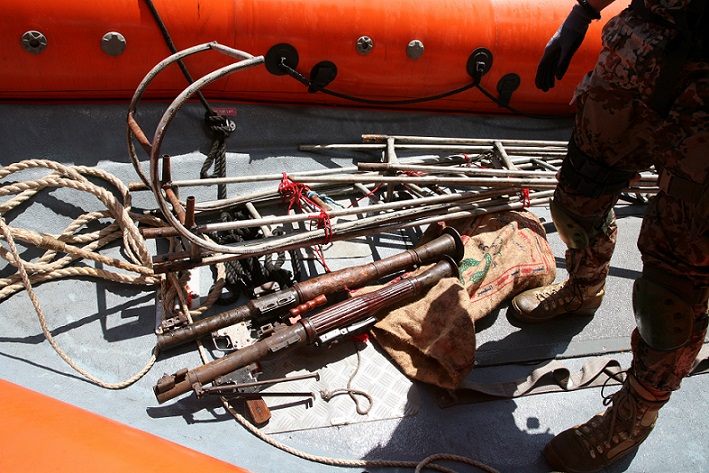Yours, mine or ours? - The issue of prosecuting Somali pirates
Written by Birgit Feldtmann, Associate Professor at the Department of Law
Friday, 13th of March, was a bad day for Somali piracy: a group of pirates was convicted in the Seychelles for, among other things, trying to hijack the Danish ship, Torm Kansas. The pirates were after the attack taken into custody on a Danish naval vessel that happened to be in the area. They were later handed over to the Seychelles and have now been sentenced to 14 years imprisonment. This brought an end to one of the few cases in which an attack against a Danish ship has been prosecuted.
The judgment is in many ways a success story, reflecting that the international counter-piracy effort has become effective and that suspected pirates will not necessarily walk free. It is also a success story that bears witness to the significant, and sometimes perilous, effort the Danish forces have contributed in the fight against piracy. It was possible to convict the pirates due to the evidence that was gathered and secured by the Danish forces, as well as their testimony.

Weapons and tools confiscated from Somali Pirates in the Gulf of Aden. Photo: Søværnet
Looking more closely, however, the case was not just a success story. By contrast, the running of the case raises a number of questions that should lead to some reflection:
The case raises the question about the lawfulness of detaining suspected pirates. The pirates were detained on 10 November 2013 and it took 13 days to bring the issue of detention before a court. This delay was later strongly criticised by a Danish court and led to the payment of a substantial compensation because the Danish Constitution requires that any detention should be reviewed by a court within 24 hours. It is noteworthy that this issue was not handled more appropriately, given that the question of the detention of pirates had already been raised in 2009/2010, were Denmark was criticised by a Dutch court for violating human rights by taking suspected pirates into custody without having the issue of detention reviewed by a court.
The second question to be asked is why was the case actually heard in the Seychelles? The case was in no way connected to the Seychelles. The case had a clear connection to Denmark as the pirates were suspected of having attacked the Danish ship Torm Kansas. The case was initially investigated by the Danish prosecution authority, which later decided not to prosecute on the grounds that a “guilty-verdict” could not be expected if the case continued to court, meaning that the evidence was insufficient.
This is fair enough. People cannot be convicted if the evidence is insufficient and they have to be released. This is what has also happened here, but with the minute detail that the suspected pirates were immediately transferred into the custody of the Seychelles authorities with the aim of initiating criminal proceedings there.
This is strange: The evidence is not sufficient in Denmark but can stand in court in the Seychelles?
I have no reason to believe that the case in the Seychelles has not been proceeded with properly. I am actually quite convinced that the case was conducted in a fair, professional and proper manner. My bafflement is not directed at the Seychelles, but at the way in which the case has been handled on the Danish side.
It cannot be ruled out that the decision not to prosecute in Denmark was not only a question about the sufficiency of the evidence, but about if we wish to have cases against Somali pirates proceeded with here. This is a relevant debate to take up, but one which should be handled openly and not hidden behind legal justifications.
To deal with the case in a manner that creates an impression that the same evidence will be evaluated in essentially different ways in different countries leads to concerns about ‘forum shopping’: do the authorities choose to run cases in countries where it is easiest to obtain a conviction? There is also another aspect to consider: there are considerable differences in sentencing practices in different countries, it is extremely doubtful that the pirates would have received 14 years had the case been handled in Denmark. Is it acceptable that the punishment of pirates is dependent on where the pirates finally land?
I’m aware that the question of prosecuting suspected pirates is not simple; it’s one of the big issues in relation to counter-piracy. There are no easy solutions. But we should conduct the debate openly and not turn to doubtful ad-hoc-solutions in individual cases. We need a more transparent system for piracy cases, which is subject to judicial control and which, on a clear legal foundation, defines who can be punished for what, where and under which conditions.